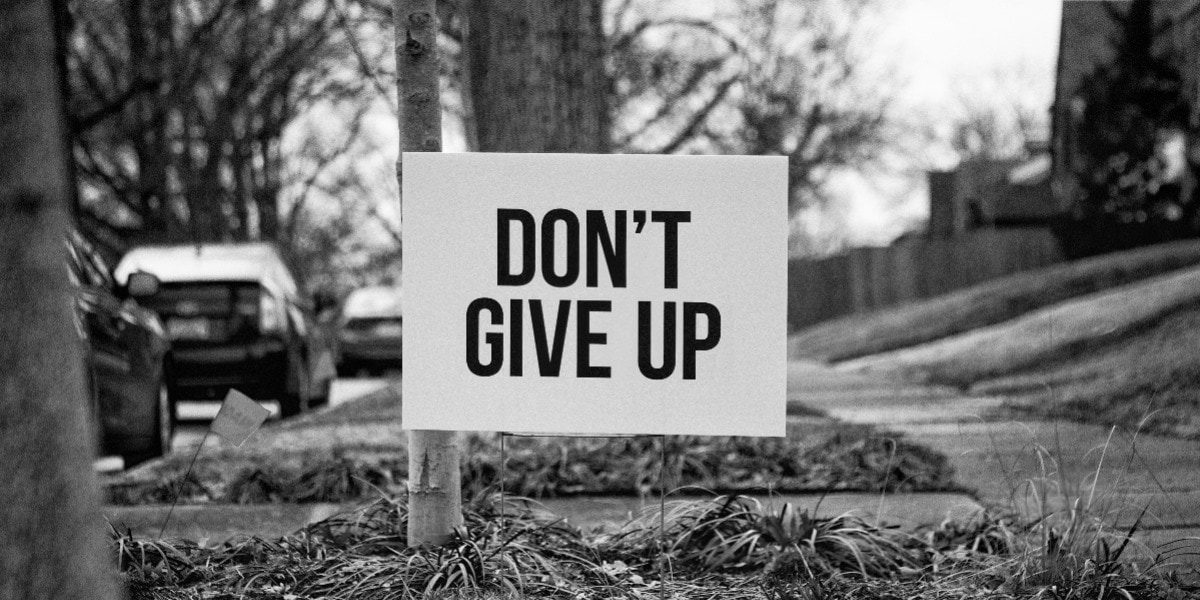Lizz Helmsen
Managing Director
This is how a friend of mine described the experience of reuniting with his fiancé in Canada and then getting back to the U.S. as travel restrictions were being put into place, and it’s turning into a common phrase in our new Covid-19 era.
Fundraisers are strong, capable, passionate, well-educated, Type A people. But we’re not immune to the stress that is so prevalent today. In fact, being strong, capable, passionate, etc. actually makes us more susceptible to anxiety in many ways, in no small part because we feel responsible for our organizations’ missions.
There are many resources available right now that talk about how to fundraise during difficult times (and about why it’s absolutely crucial for you to keep going!). But we also need to take care of ourselves. A good first step is to remember that we’re not alone. Increasingly, prompted by the World Health Organization and others, the term “physical distancing” is replacing “social distancing”. This is an important distinction, and one fundraisers inherently understand: relationships matter.
We also know the power of storytelling. Lessons that come from stories are particularly powerful. Plus, while experience is the best teacher, you don’t always have to be the one learning the lesson directly. With that in mind, here are some of the stories I remember when I need a boost.
There Are No New Plots – Only New Twists
This comes from my high school drama teacher. Yes, we are facing a global crisis. And the double-whammy of the pandemic and resulting economic stress is one heck of a plot twist. But we have been through crises before, even multifaceted crises including the 1918 flu pandemic that coincided with World War I. We will get through this.
Understanding that there are no new plots can also help when we feel pressure to come up with something super-creative/different/inspiring. No. We don’t have to do something earth-shattering. We just have to be sincere. None of what I’m saying here is revolutionary, but I do hope that I have enough of a new twist to be of use. As an added bonus, when we do have a brilliant idea, we can recognize (and be grateful for) all of the bits and pieces from yesterday’s plots that we combined to move forward.
Panic – Then Get Over It
This comes from a guest professor in college, and it seems counterintuitive. Who in their right mind would actually encourage panic? Especially right now. But I still remember how he walked into class, introduced himself, and then gave us a project that was an order of magnitude larger than anything we had done to date. Before we could hyperventilate, he told us that most people’s advice would be to not panic, but that wasn’t realistic. It’s human nature to panic when faced with something overwhelming, so go ahead. Give yourself a moment to let it out rather than holding it in and letting it fester. Then take a deep breath. Get over it. Start planning. This is the less clinical way of explaining why repression is so damaging to our mental health.
Of course, panic doesn’t always hit immediately. Sometimes we’re doing just fine right up until the point where we’re NOT fine. One of the school counselors I know says that week three of a new school year is when she usually starts seeing problems for students because the newness is gone and reality sets in. Personally, I tend to get nervous after I’ve finished something, when the adrenaline wears off and the “If Onlys” start: “If only I’d said/done this differently,” or “I should have done xyz.” Regardless of when anxiety strikes, the answer is still to acknowledge that fear is normal but we don’t have to let it control us. Take a deep breath. Get over it. Start again.
Always Look on the Bright Side of Life
Yes, I am a Monty Python fan. And while the reference – like much of Monty Python – is irreverent to say the least, it’s good advice. When I heard my son quote Holy Grail during one of his darkest days, that glimpse of humor was something to hold onto. My friend who had the harrowing week that led him back to the U.S.? He and his fiancé got married and are together. Some silver linings are small. My dog has never been happier. Some may have long-term effects that you can’t see yet. Family dinners are, by default, happening more frequently, and studies consistently show that students who have family meals do better academically, have stronger relationships, engage in fewer risky behaviors, and even have greater vocabularies.
One of the great benefits – and true joys – of being a consultant is that I have a front row seat to watch remarkable organizations across the world as they pivot to address the current crisis, stay connected with their constituents, and continue advancing their missions. I say this not to minimize the challenges we face – they are real and daunting – but to acknowledge the awe-inspiring efforts of people who are dedicated to fulfilling their missions regardless of what the world throws at us.
Here are two of my silver linings:
- A youth orchestra had their much-anticipated trip to Carnegie Hall cancelled, along with all of their live rehearsals and their additional spring performance. This was a huge blow, especially for the high school seniors. But the whole organization stuck together and quickly rallied around three virtual goals: Musical Growth, Staying Connected, and Staying Live with Music. They’re now holding virtual masterclasses once a week, using Acapella app for students to make recordings, and planning for virtual auditions should that be necessary. Parent and student feedback has been tremendous.
- Another youth organization reached out to one of their lead donors with the authentic purpose of telling him what the organization was doing, how they were pivoting to continue serving children. The Board wanted to keep their staff, knowing that staff is the lifeblood of their mission. The donor asked how much it cost per month to keep everyone employed. Not knowing where the question was leading, the executive director hesitated but chose to respond honestly. The donor said, “How about I cover three months of that expense for you.” What a wonderful, powerful example for all of us: transparency, mutual respect, and a donor jumping at the chance to help!
“Real Strength Has to Do with Helping Others”
Having lived in Pittsburgh for 30 years, I’d be remiss if I didn’t think of Fred Rogers. When I’m feeling cynical, my favorite book is a compilation of famous insults. The old Scottish curse, “May you live in interesting times,” seems particularly apropos at the moment. But Mr. Rogers’ sense of calm and his love are always here for us, and his words are stronger than even the cleverest bit of snark. We are all connected, all neighbors, all capable of giving and worthy of receiving help.
So, as we navigate uncertain waters, remember that you are not alone. You can do it. We will help.


